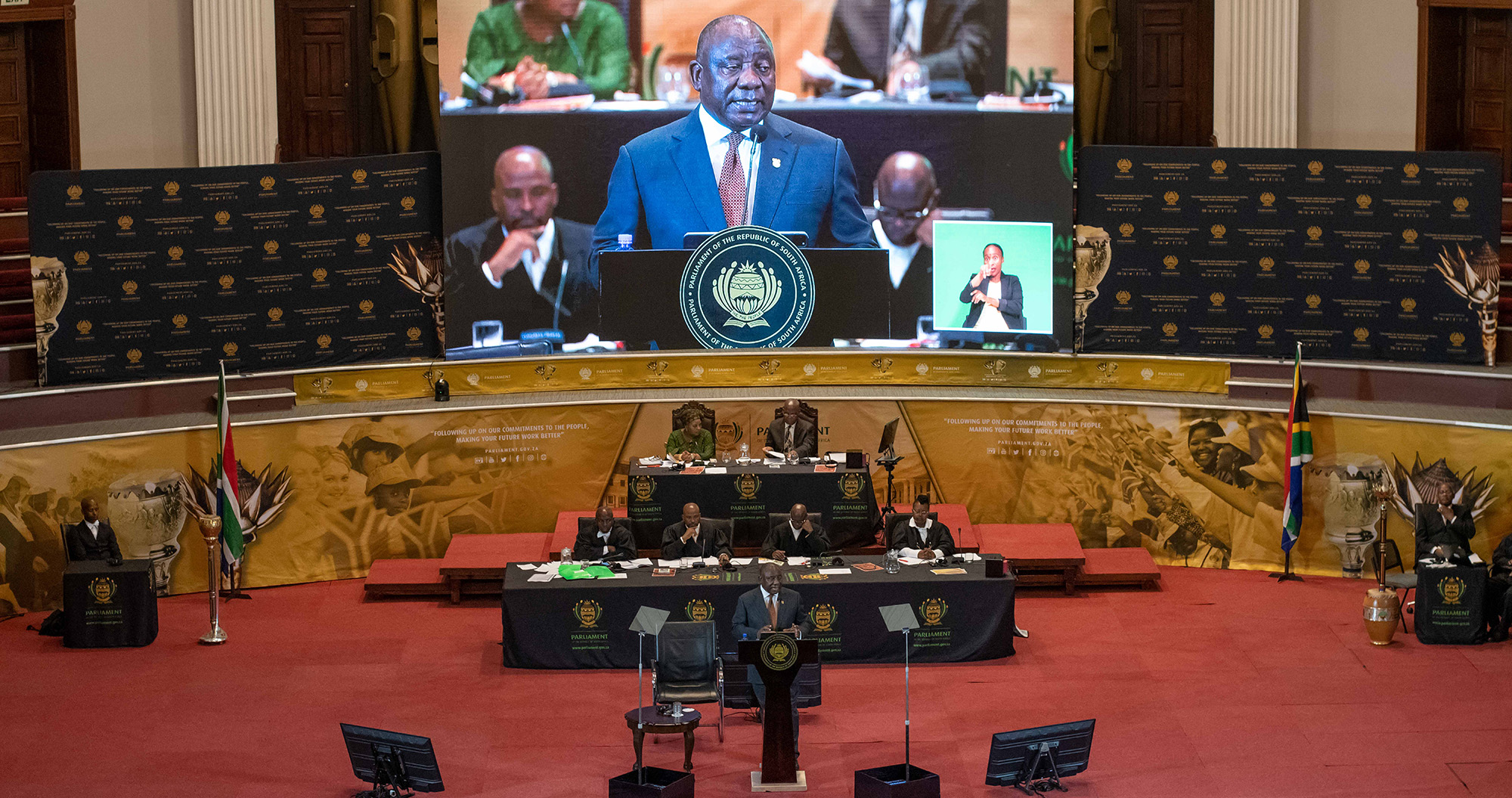The government is pressing ahead with the plan to establish a company that will hold the shareholding of all state-owned enterprises (SOEs) — from Eskom to Transnet — aimed at improving oversight of the companies.
A centralised shareholder model was proposed by President Cyril Ramaphosa during his State of the Nation Address (Sona) on Thursday, in which the ownership or shareholding of SOEs is housed under one company instead of being fragmented through government departments.
For example, Eskom, SAA, Transnet and others currently report to the Department of Public Enterprises, while the South African Broadcasting Corporation (SABC) reports to the Department of Communications and Digital Technologies. Ramaphosa wants SOEs to report to one holding company instead of reporting to various and fragmented government departments.
This is the direction recently adopted by Malaysia, which has established a company that holds all the equity or shareholding in SOEs, and has a view of selling some of the entities to private sector players. A similar direction has been taken by South Africa, which is increasingly embracing the private sector in the ownership model of SOEs.
The proposed state-owned holding company would hold all the equity, some of which would later be sold to private sector partners or the entities listed on the stock exchange to raise capital. Having SOEs housed under the holding company would speed up the process of deal-making, especially in identifying SOEs that are deemed less strategic to the government’s economic ambitions and are subject to be sold.
It is intended that the SOEs under the holding company would be able to stand on their own, raise capital (like private sector companies on the stock exchange) and not depend on taxpayer-funded bailouts for survival. Most of the SOEs fall under the Department of Public Enterprises in terms of their operational and governance structures.
Visit Daily Maverick's home page for more news, analysis and investigations
The minister of public enterprises, Pravin Gordhan, previously said establishing a company that would hold the shareholding of all SOEs would have the advantage of separating the state’s ownership functions from its policy and regulatory functions, minimising the scope for political interference, and introducing greater professionalism into the entities.
In doing so, Ramaphosa appointed an SOE Council that sits within the Office of the Presidency and includes experts from big business, state organs and academia.
The council’s work is ongoing and its members cannot speak publicly about it because they signed confidentiality agreements with the Office of the Presidency. Another challenge is that its mandate is wide, as the members have to explore the state of SOEs — all 700-odd of them — and no deadline was given to the council’s work when it was assembled by Ramaphosa. But Ramaphosa, during his Sona, gave a glimpse into the work of the SOE Council, which comprises private sector businesspeople, economists and one or two independent policy analysts.
“We will implement the recommendation of the Presidential SOE Council to establish a state-owned holding company as part of a centralised shareholder model that will ensure effective oversight of SOEs.
“Separately, I have instructed the Presidency and National Treasury to work together to rationalise government departments, entities and programmes over the next three years.
“National Treasury estimates that we could achieve a potential saving of R27-billion in the medium term if we deal with overlapping mandates, close ineffective programmes and consolidate entities where appropriate,” said Ramaphosa during his speech on Thursday.
But the proposal to introduce a holding in the SOE universe is yet to be approved by the ANC National Executive Committee. Ramaphosa is confident that it will pass muster with his ANC and government colleagues.
“The process of restructuring the government will give us an opportunity to determine the positioning of various areas of responsibilities, and how best the various ministries and departments can best serve our national objectives. We are focusing our attention on the energy crisis right now and will address the restructuring of government in due course.
“This is necessary because an effective response to this crisis involves several different departments and entities that require coordination from the centre of government,” he said, but there was no mention of a previously mentioned plan to move SOEs to their line government departments.
It would mean crucial SOEs such as Eskom and Transnet would be moved from the Department of Public Enterprises to the Department of Mineral Resources and Energy, and the Department of Transport, respectively.
It would be a step change, considering that the Department of Public Enterprises was specifically created in 1999 to house SOEs to drive their success and accelerate their restructuring, professionalisation and good governance.
Some SOEs already report to line departments, including the SABC and SA Post Office, which account to the Department of Communications and Digital Technologies; and Prasa and Sanral, which report to the Department of Transport. But this was not mentioned during Ramaphosa’s Sona. DM/BM





